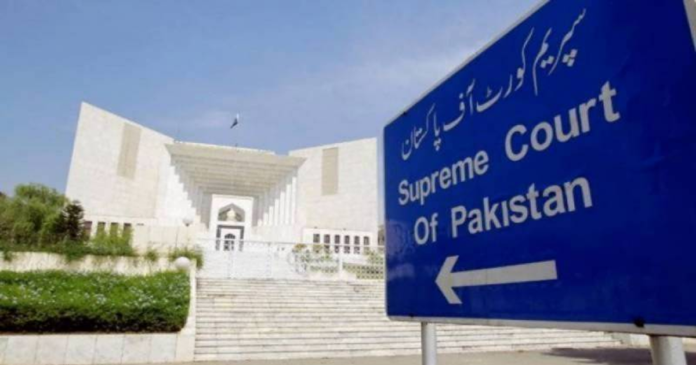The Supreme Court (SC) on Friday declined to stay civilians’ trial in the military courts.
SC rejects plea to stay civilians’ trial: A six-member panel, led by Chief Justice of Pakistan Justice Umar Ata Bandial and including Justices Ijazul Ahsan, Muneeb Akhtar, Yahya Afridi, Sayyed Mazahar Ali Akbar Naqvi, and Ayesha Malik, is hearing the appeals against military courts.
Attorney General of Pakistan (AGP) Mansoor Awan continued to make his case before the court at today’s session.
Awan claimed in his remarks that under certain circumstances, military courts might try civilians. He also mentioned that the military courts’ judges took an oath before hearing cases. He claimed to have discussed the “organised” strategy that underlay the bloody May 9 events.
Awan claimed that the video clips played in court make it clear that many persons were involved in the events of May 9. Despite the enormous number, he added that they selected 102 people for court-martial after exercising caution.
During the hearing, Justice Naqvi asked about the process used to determine who would be tried in military courts and who wouldn’t. Military tribunals will hear cases involving offences covered by Section 2(1)(d) of the Army Act, according to Awan.
Awan argued that prior to the passage of the 21st Amendment, the Army Act mentioned its applicability to civilians, and thus, it did not violate fundamental human rights.
“Supreme Court Rejects Stay Order Request for Military Court Appeals of Civilians”
The AGP requested a one-month period for consultation when CJP Justice Umar Ata Bndial inquired about the accused’s ability to appeal in military courts, claiming that this is a “crucial” issue.
One of the petitioners, former Chief Justice of Pakistan Justice (retired) Jawad S. Khawaja, responded that they didn’t object if the government needed time to pass legislation but begged with them to impose a stay order against military courts.
The SC bench rejected the argument. Who can a stay order be issue for when the trials of civilians have not yet begun? CJP asked.
Combat Trials
The government was to try the suspects accused of attacking military posts on May 9 under army regulations in May.
Violent confrontations broke out throughout Pakistan after authorities took the former prime minister and Pakistan Tehreek-e-Insaf into custody on May 9 from the grounds of the Islamabad High Court (IHC).
During a protest by PTI workers, army installations, the home of the Corps Commander in Lahore, and General Headquarters (GHQ) in Rawalpindi came under attack.
Pleas
The government announced its decision to hold military court trials of those found guilty of damaging and attacking military instalments following the arrests made in connection with the violent riots that broke out across the nation on May 9. Both the government and the army considered this announcement to be a low blow.
Imran Khan, the chairman of the PTI, former chief justice Jawwad S. Khawaja, legal expert Aitzaz Ahsan, and five representatives of the civil society, including Karamat Ali, the executive director of Piler, asked the supreme court to declare the military trials “unconstitutional” in light of this ruling.

